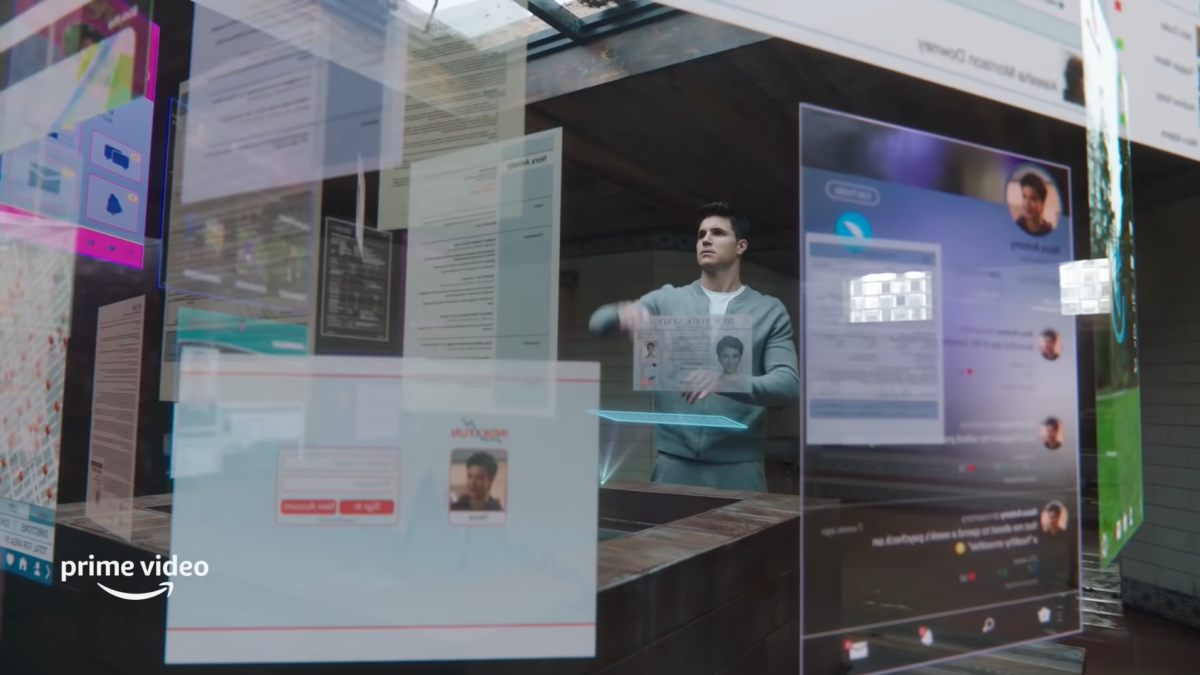Season two of Amazon’s popular sci-fi dramedy “Upload” is still trending on the platform’s top 10 a month after its release. The humor is average at best and the left-wing bias is almost obnoxious enough to kill the charm of the main characters’ love story, but it is still worth watching for its exploration of cybernetic immortality, or “upload.” The effective transfer of human consciousness from the biological to a purely mechanical component is a project supported by transhumanists: people who believe humanity should not and will not be limited to pure, “organic” human biology.
Given the rapid uptake of web-based virtual reality, both seasons of “Upload” offer a glimpse into a future that is lived by many either mostly or completely in VR. It also exposes myriad reasons why “uploading” to a digital afterlife would unleash a pandora’s box of social and spiritual ills.
The increasing marginalization of the historical Christian faith has provided bare soil for new religious systems to grow and, as the adage goes, “nature abhors a vacuum.” “Upload” as a headlining comedy shows a breakthrough of transhumanism into the mainstream consciousness. As Dr. Daniel Cebo wrote, “Cybernetic immortality can take the place of metaphysical immortality to provide the ultimate goals and values for the emerging global civilization.”
Completely contrary to this secular optimism, the show aptly demonstrates that an inability to accept death leads to compounding dilemmas that never should have existed in the first place.
Digitizing Relationships
The most obvious problem “Upload” presents is the upkeep of relationships with loved ones who are still alive. In the show, afterworld resident Nathan’s real-world girlfriend hazards physical maladies and overt neglect of her real life by all but living in a sensation-enabled “hug suit” to simulate her physical presence in the show’s main digital afterlife, Lakeview.
Continuing relationships with those who are passing on from this world are one of the chief reasons people would upload, or push their aging relatives to upload, in the first place. While death and grief are painful, entangling people in a faux world they cannot really inhabit and making it difficult to move on from loved ones who have passed is cruel.
And what happens when dozens of elderly relatives, maybe who’ve lived into their 90s or beyond, upload and then expect a continued relationship and regular attention from their living relatives, whose time and emotional energy are stretched thin? Instead of “freeing” the dying to continue living, we’ve obligated the living to a set of relationships beyond their ability to maintain, or else abandoned the elderly to be cared for by AI bots indefinitely.
Commodification of Children
Still more disturbing, the naked commodification of family in “Upload” through the prospect of rearing AI “children” blended from co-parents’ “programs” so dead people can feel more fulfilled is clearly a dig at the idea that one can start and raise families after upload. One of “Upload’s” chief problems that becomes obvious in season two is not only its propensity to create dysfunction in pre-existing relationships, but its inability to provide the basis for a functional natural family, the primary building block of healthy societies.
Again, the problems in “Upload” are duplications or further complications of things that have already gone very wrong. We are increasingly engaged in the commodification of real children as the surrogacy and “designer baby” industries grow.
If AI babies exist and can convincingly grow and mature, would so-called “child-free” individuals simply wait until the digital afterlife to give parenting a shot? Would women who desperately want a baby but have no real-world prospects of committed, loving relationships commit suicide to pursue an idealized AI family?
A Big Tech Dystopia
These are just the beginning of problems inherent in “living” in VR. In “Upload’s” technocratic near-future regime, controlling Big Tech corporations drive a sinister subplot, having gained all the power they lust after today.
A spoof of Google and Meta called “Horizen” stands as the cliché big “capitalist” baddie that’s only looking to profit. In season two, they debut a newly legal feature called “MindFrisk” so they can scan residents’ brains for key words or phrases (like things that are “anti-capitalist”) that might indicate a potential threat.
But Horizen’s ability to control and surveil the denizens of its digital afterlife is far from dependent on its profit motive. And all the same threats to health, liberty, and privacy are presented right now in the leftist-controlled tech companies of Silicon Valley, including surveillance, censorship, attention-drain and perspective manipulation (i.e. newsfeed algorithms), loss of touch with reality, bombardment with advertisements, and body dysmorphia, to name a few.
Man’s Lust for Immortality
While Christians know that a soul cannot exist apart from the body in cyberspace, the possibility of “upload” is not the concern. Rather, it is the pursuit of a cheap, self-centered immortality that seeks, instead of being in communion with the one true God, to be like a god and live forever on one’s own terms. The technological fantasy may be relatively new, but the story is as old as the Fall: A prideful human gets the idea that he knows best and ends up miserable.
Even while a growing number of people actively resisting God would be open to the idea of cybernetic immortality, the struggle of the uploaded to find rest in their “retirement,” even in a fictional reality that is meant to be humorous, should clue in even the secularists that this “post-human” project is not desirable, even if it provided “answers” and goals to strive for.
Much like biology-defying gender ideology, this faux immortality’s solutions and “freedoms” propagate problems of increasing complexity and causes for perpetual anxiety instead of providing clarity of purpose, morality, or comfort. If you do watch “Upload,” watch with that in mind.









